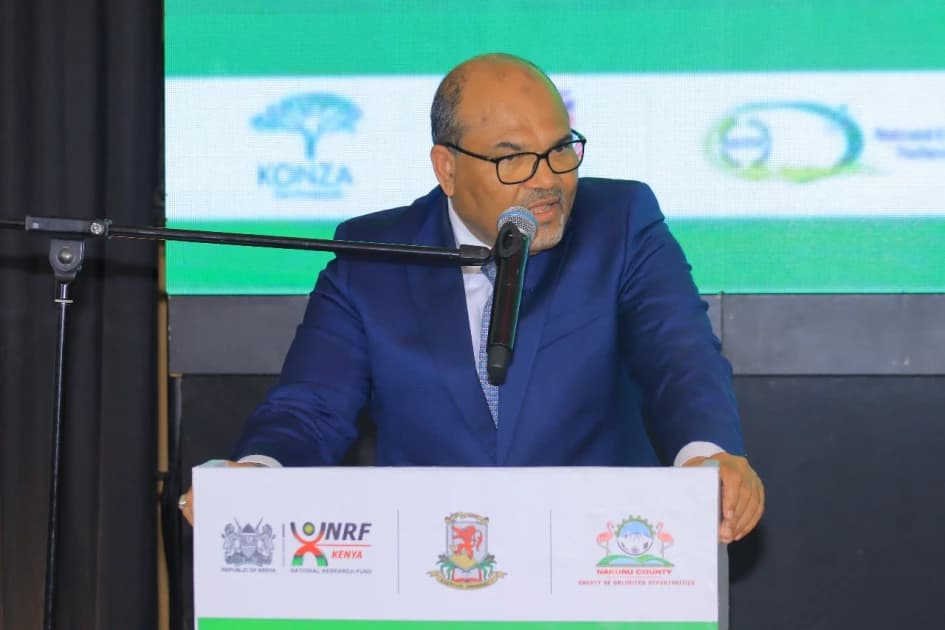We're loading the full news article for you. This includes the article content, images, author information, and related articles.
At the Kenya National Research Festival in Nakuru, officials urged the government to invest in science and technology to support food security and climate resilience. The NRF has already invested over KSh 7 billion in research projects and postgraduate students

Nakuru, Kenya – Leaders at the opening of the Kenya National Research Festival at Egerton University have called for stronger investment in science, technology, and innovation, arguing that it is the key to securing the country’s food systems and long-term economic future.
Agriculture Cabinet Secretary Mutahi Kagwe urged policymakers to channel more resources into research on arid and semi-arid lands, which make up over 80 percent of Kenya’s landmass and are home to millions of pastoralists. He stressed that innovations in climate resilience, sustainable agriculture, and biotechnology must be prioritised under the government’s Bottom-Up Economic Transformation Agenda (BETA) if Kenya is to achieve lasting food security.
Shaukat Abdulrazak, Principal Secretary for Science, Research and Innovation, highlighted the untapped potential of Kenya’s arid and semi-arid regions, noting that modern technologies – including applications of nuclear science – could reduce post-harvest losses and boost productivity.
He revealed that the National Research Fund (NRF) has already disbursed more than KSh 7 billion to support over 400 research projects and fund 700 postgraduate students, with substantial allocations directed to Egerton University.
The five-day festival, running from August 19 to 23, is themed “Sustainable Food Systems for the Bottom-Up Transformation Agenda”. It brings together academics, policymakers, private sector representatives, and farmers to showcase innovations and debate strategies for embedding science into Kenya’s agricultural future.
Kagwe emphasised that science-based policymaking would be critical to shielding farmers from the effects of climate change and ensuring the resilience of food systems. “Without investment in research, our farmers will remain vulnerable to shifting weather patterns and emerging pests and diseases,” he warned.
Policy analysts say the festival marks a shift toward evidence-driven policymaking in Kenya, where political agendas have often overshadowed technical solutions. They argue that centering science in development planning could accelerate adoption of technologies that help smallholder farmers adapt to climate change, improve yields, and access markets.
Participants at Egerton expressed optimism that the discussions would translate into increased funding for research institutions, more public-private partnerships, and stronger policy support for innovation.
Kenya’s food security challenge remains acute, with the country frequently facing droughts, high post-harvest losses, and rising import bills. The call for investment in research and innovation signals recognition that the future of agriculture will depend not only on land and rain, but on knowledge, technology, and science-led policy.
As one university researcher put it: “We must shift from reacting to crises to investing in the science that prevents them.”
Keep the conversation in one place—threads here stay linked to the story and in the forums.
Sign in to start a discussion
Start a conversation about this story and keep it linked here.
Other hot threads
E-sports and Gaming Community in Kenya
Active 9 months ago
The Role of Technology in Modern Agriculture (AgriTech)
Active 9 months ago
Popular Recreational Activities Across Counties
Active 9 months ago
Investing in Youth Sports Development Programs
Active 9 months ago
Key figures and persons of interest featured in this article